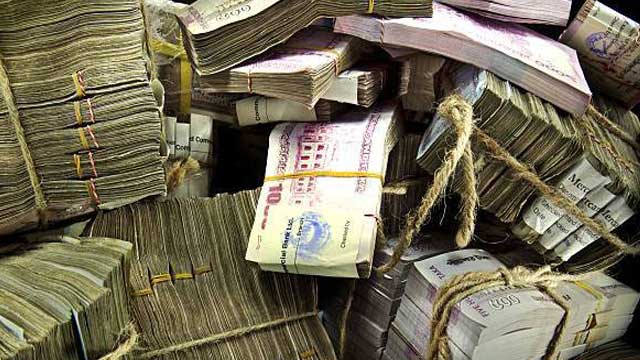The deposits by Bangladeshi citizens in Swiss banks stood at Tk 5,392 crore or 603.02 million Swiss francs in 2019, according to the Swiss National Bank data released on Thursday.
The Bangladeshi deposits in the year, however, slightly fell — by around 2.30 per cent — compared with those of 617.72 million Swiss francs in 2018.
The deposits from the country in the banks of Switzerland had increased by 28.33 per cent in 2018 from those of 481.32 million Swiss francs in the previous year.
The SNB disclosed the data in its annual report titled ‘Banks in Switzerland 2019’ without giving further details about the deposits and the depositors.
Though the amount of deposits declined slightly in the year, it was still a big one, experts and economists said.
They said that the figure in any way did not prove that money laundering from the country was declining.
Rather, all other indicators and data indicate the rising volume of illicit financial flows from the country through trade-based money laundering, investment under second-home schemes and investment in tax haven countries, they said.
Policy Research Institute executive director Ahsan H Mansur told New Age that Swiss banks were no attractive destinations for money launderers due to the enhanced transparency now maintained by Switzerland.
The SNB discloses information about the depositors in conjunction with the governments of second countries, he said.
So, Swiss banks are losing attraction, he added, while there are many other options like tax havens, second-home schemes offered by countries like Canada, Malaysia and the United Arab Emirates.
He said that siphoning off money from the country was going on as children of most of the top politicians, businesspeople and bureaucrats live abroad.
The government, however, can seek information from Switzerland to see who the depositors were and whether the money was illegally drained out of the country, he offered.
Ahsan said that all the money deposited in Swiss banks was not necessarily illegal. Non-resident Bangladeshis and Bangladeshi businesses based in Europe may keep their money in the banks.
World Bank consultant Zahid Hussain said that the non-increment of the amount of deposits did not prove that the incidences of money laundering declined.
Many are not depositing money in Swiss banks, he went on, due to their compliance with the Anti-Money Laundering and Combating the Financing of Terrorism (AMLCFT) regulations.
In addition to the existing destinations, even Singapore and Thailand are now attracting illicit financial flows from Bangladesh, he said.
Trade-based money laundering through over-invoicing in import and under-invoicing in export, and hand notes remained the major ways of money laundering from Bangladesh, he further said.
The Global Financial Integrity, a Washington-based watchdog, in its report released in 2019, said that a total of $81.74 billion was siphoned off from Bangladesh between 2006 and 2016.
According to the SNB data, the deposits by Bangladeshi citizens were 235.59 million Swiss francs in 2010 which declined to 152.31 million in 2011 and again increased to 228.86 million in 2012.
The deposits went up to 371.88 million in 2013, to 506.05 million in 2014 and reached the highest-ever amount at 661.96 million Swiss francs in 2015.





